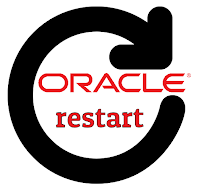DBA Scripts coding considerations for best compatibility to any platform
This is a typical issue DBAs cope with, the solutions can be:
I am writing in Bash, but have started moving to Python (for new and complicated needs).
Recently I had a need to work on Solaris. Because I believe in using one code for all, I started to modify my code with a lot of IFs.
Above that, I needed to adjust external utilities like "sed" and "awk" since they do not work the same (Solaris Vs Linux).
Luckily I found that from Solaris 11 there are built-in gnu commands which are compatible with Linux, that are located in a different directory and start with the letter "g": "sed" is "gsed", "awk" is "gawk" and so on.
I decided that the gnu utility commands will be a variable in all of my scripts. All scripts will call a master environment file that decides which version to use.
Now we will see a generic script version which uses the variables above:
Yossi Nixon
- Each system has its own best scripting code (PowerShell for windows, bash for Linux), let's keep some versions of the same code.
- Write the code in a common language for all systems
- Shell: In the past I used the old Posix shell (sh) which exited in all Unix systems. These days I use bash as is very common.
- Perl: Oracle installation already has its own Perl, no need to install it.
- Java: Oracle installation already has its own java, no need to install it.
- Python: Python should be installed, but the libraries that can be used are huge, and you can write shorter code.
- Write in sql/plsql as much as you can, the external code will be minimal (cmd / sh).
- Work remotely from your convenient operating system, using your scripts written in the language you master.
- Use a few macros injected to your terminal.
- Why use scripts, I use Toad / Cloud Control - it is much easier.
- Leave me alone, I like typing the same commands over and over.
I am writing in Bash, but have started moving to Python (for new and complicated needs).
Recently I had a need to work on Solaris. Because I believe in using one code for all, I started to modify my code with a lot of IFs.
Above that, I needed to adjust external utilities like "sed" and "awk" since they do not work the same (Solaris Vs Linux).
Luckily I found that from Solaris 11 there are built-in gnu commands which are compatible with Linux, that are located in a different directory and start with the letter "g": "sed" is "gsed", "awk" is "gawk" and so on.
I decided that the gnu utility commands will be a variable in all of my scripts. All scripts will call a master environment file that decides which version to use.
cat platform.envIn my last blog I discussed about identifying $ORACLE_SID and $ORACLE_HOME Basics commands for DBA part 1 - finding instance.
platform=`uname -s`
case "$platform"
in
"SunOS") os=Solaris
ORATAB=/var/opt/oracle/oratab
AWK=gawk
GREP=ggrep
EGREP=gegrep
SED=gsed
HOST_NAME=$(hostname)
DF=gdf
FIND=gfind
USER=${LOGNAME}
CAT=gcat
CHOWN=gchown
CHMOD=gchmod
CP=gcp
ECHO=gecho
MKDIR=gmkdir
CUT=gcut
SUDO=/usr/local/bin/sudo
;;
"Linux") os=Linux
ORATAB=/etc/oratab
AWK=awk
GREP=grep
EGREP=egrep
SED=sed
HOST_NAME=$(hostname -f)
DF=df
FIND=find
CAT=cat
CHOWN=chown
CHMOD=chmod
CP=cp
ECHO=echo
MKDIR=mkdir
CUT=cut
SUDO=sudo
;;
#"HP-UX") os=hpunix;;
# "AIX") os=aix;;
*) echo "Sorry, $platform is not currently supported." | tee -a $LOGFILE
exit 1;;
esac
Now we will see a generic script version which uses the variables above:
#!/bin/bashPlease comment and tell us about your way of using DBA scripts
export SCRIPT_DIR="$( cd "$( dirname "${BASH_SOURCE[0]}" )" && pwd )"
source ${SCRIPT_DIR}/platform.env
if [ -f ${ORATAB} ]
then
for ORA_SID in `${CAT} ${ORATAB} | ${GREP} -v ^'#' | ${GREP} -v ^$ | ${AWK} -F ":" ' { print $1 }' | uniq`
do
if [[ ! "${ORA_SID^^}" == *"ASM"* ]] && [[ ! "${ORA_SID^^}" == *"MGMTDB"* ]]
then
echo working on ${ORA_SID}
export ORACLE_SID=${ORA_SID}
export ORACLE_HOME=`${CAT} $ORATAB | ${GREP} ^${ORACLE_SID}: | ${GREP} -v "^#" | ${GREP} -v "^$" | ${CUT} -d":" -f 2`
Put your code here, using the variables above
fi
done
fi
Yossi Nixon



Comments
Post a Comment